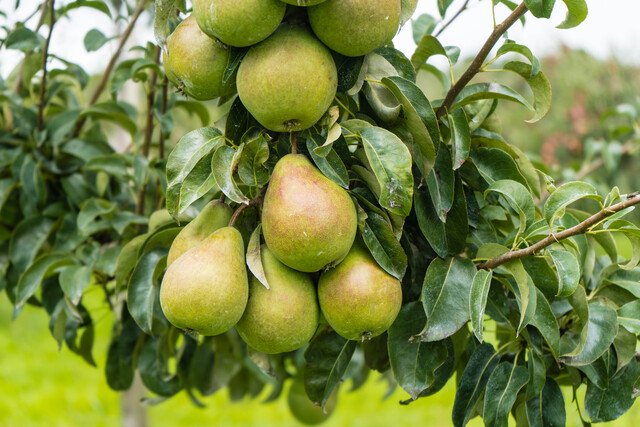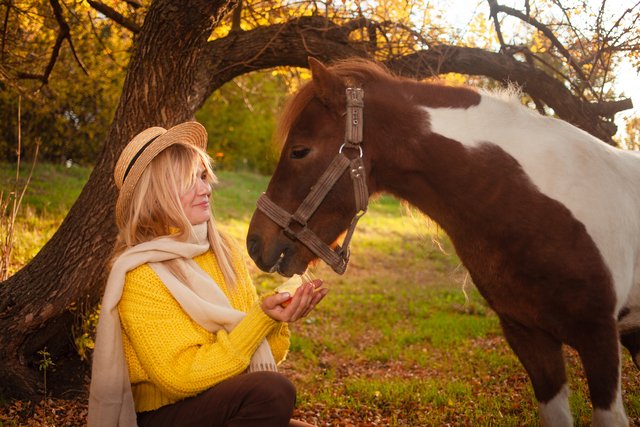There’s a common question among horse owners: Can horses eat pears? In this guide, we will explore the nutritional benefits of feeding pears to horses and discuss precautions to keep in mind.
Understanding the dos and don’ts when it comes to introducing new foods to your equine companion is crucial for their health and well-being.
Nutritional Benefits of Pears for Horses
Vitamins and Minerals
Some of the key vitamins and minerals found in pears are vitamin C, vitamin K, potassium, and copper. These nutrients play important roles in supporting the overall health and well-being of horses.
Antioxidants
Nutritional experts have highlighted the antioxidant properties in pears, which can help boost the immune system and protect cells from damage caused by free radicals.
The antioxidants found in pears, such as flavonoids and carotenoids, are known for their anti-inflammatory and protective effects, making pears a valuable addition to a horse’s diet.
Fiber Content
Pears are a good source of dietary fiber, which is crucial for maintaining proper digestive health in horses. The fiber content in pears can aid in digestion and prevent issues such as colic or constipation.
With a healthy dose of fiber, pears can help regulate the digestive system of horses, promoting optimal gut function and overall well-being.
Water Content
Horses can benefit from the hydrating properties of pears, as they have a high water content. Hydration is important for overall health, especially for active horses or in hot weather conditions.
For instance, offering pears as a treat can be a tasty way to help keep a horse hydrated and ensure they receive a good amount of water alongside their regular drinking routine.
Types of Pears Suitable for Horses
If you’re considering adding pears to your horse’s diet, it’s vital to know which types are safe and beneficial for them. Here are some varieties of pears that are suitable for horses:
| Bartlett Pears | Bosc Pears |
| Anjou Pears | Asian Pears |
Bartlett Pears
The Bartlett pears are a popular choice for horses due to their sweet taste and juicy texture. These pears are rich in vitamins and minerals, making them a nutritious treat for your equine companion.
Bosc Pears
One of the best types of pears for horses is the Bosc variety. They are known for their firm texture and sweet flavor, which horses tend to enjoy.
For instance, Bosc pears are high in fiber, which can aid in digestion and promote overall gut health in horses.
Factors to Consider Before Feeding Pears to Horses

For horse owners considering adding pears to their equine friend’s diet, there are several important factors to keep in mind.
These considerations will help ensure the health and well-being of your horse while introducing this tasty treat.
Recognizing these factors will help you make an informed decision about feeding pears to your horse.
Age and Health of the Horse
Feeding pears to horses should take into account the age and health of the horse.
Younger horses or those with health issues may need a different diet than healthy adult horses.
It’s crucial to consult with a veterinarian before incorporating any new food into your horse’s diet to ensure it aligns with their specific needs.
Quantity and Frequency
You should carefully consider the quantity and frequency of feeding pears to your horse.
While pears can be a healthy snack, they should be given in moderation to prevent digestive upset.
You should also be mindful of how frequently you offer pears to your horse to maintain a balanced diet.
Monitoring your horse’s overall calorie intake is crucial for their well-being.
Allergies or Sensitivities
Feeding pears to horses with known allergies or sensitivities should be approached with caution.
Some horses may have an adverse reaction to pears, leading to gastrointestinal issues or allergic reactions.
If your horse has a history of food sensitivities, it’s best to introduce pears slowly and monitor for any negative reactions.
Organic vs. Non-Organic Pears
An important consideration when feeding pears to horses is whether to choose organic or non-organic fruits.
Organic pears are grown without synthetic pesticides or fertilizers, which may be preferable for some horse owners looking to minimize chemical exposure.
However, non-organic pears can still be a safe and nutritious option for horses, especially if thoroughly washed before feeding.
Tips for Preparing Pears for Horses
Washing and Cleaning
Washing the pears thoroughly is vital before feeding them to your horse. This helps remove any dirt, pesticides, or residues that may be present on the skin.
Cutting into Proper Sizes
Horses can easily enjoy pears when they are cut into bite-sized pieces. This makes it easier for them to chew and digest the fruit without any risks of choking.
It is recommended to cut the pears into small, manageable pieces to prevent any potential choking hazards. Large chunks may be difficult for horses to eat comfortably.
Removing Seeds and Stems
Before serving pears to your horse, make sure to remove all the seeds and stems. These parts can be a choking hazard and may contain compounds that are harmful to horses.
It is important to note that apple seeds, similar to pear seeds, contain cyanide compounds. Therefore, removing them is crucial to ensure the safety of your horse.
Mixing with Other Foods
When incorporating pears into your horse’s diet, consider mixing them with other foods like grass or hay. This can provide a balanced diet and prevent overindulgence in fruits.
Pros and Cons of Including Pears in a Horse’s Diet

Pros
- Pears have a high water content, helping horses stay hydrated, especially in hot weather. They also offer dietary fiber, aiding digestion and gut health.
- Pears provide vitamins, particularly Vitamin C, which supports the immune system.
Cons
- Pears contain natural sugars, which can be excessive if fed in large amounts. This can lead to weight gain and issues for horses prone to laminitis.
- Pear cores and seeds are hard and can cause choking. It’s crucial to remove them before offering pears to your horse.
- Some horses, particularly older ones or those with dental problems, might struggle to chew pears safely.
Overall, Pears can be a healthy treat for horses in moderation. Always remove seeds and cores, cut them into small pieces, and monitor your horse’s reaction when introducing them for the first time.
Consulting with a veterinarian is recommended to ensure pears fit your horse’s specific dietary needs.
Step-by-Step Guide to Introducing Pears to Your Horse’s Diet
Some horses may not be accustomed to pears, so it’s best to start slowly. Begin by offering a small piece to see if your horse shows interest.
Monitoring for Reactions
Your horse’s well-being is paramount. Monitor closely for any signs of adverse reactions such as digestive upset or allergic responses.
For instance, if you notice any unusual behavior or physical symptoms after feeding pears, consult your veterinarian immediately.
Gradually Increasing Quantity
Guide your horse’s transition by slowly increasing the amount of pear offered over a few days. This gradual increase helps prevent digestive issues.
It is important to monitor your horse’s response as you increase the pear quantity to ensure they are tolerating it well.
Establishing a Regular Feeding Routine
Gradually incorporate pears into your horse’s regular feeding routine to allow their digestive system to adjust to this new addition.
Increasing the quantity gradually and maintaining a consistent feeding schedule will help your horse enjoy the nutritional benefits of pears without any disruptions to their overall health.
Precautions When Feeding Pears to Horses

There’s a need to avoid feeding horses over-ripened pears as they can ferment and lead to gastrointestinal issues.
Ensure that the pears are fresh and in good condition before offering them to your equine companion.
Monitoring for Choking Hazards
Even though pears are generally safe for horses to eat, there is a risk of choking, especially if the fruit is not cut into bite-sized pieces.
Monitor your horse while they eat pears to prevent any potential choking hazards.
Ensuring Adequate Water Supply
Feeding your horse pears can increase their water intake due to the fruit’s high water content.
Ensure your horse has access to clean and fresh water at all times to prevent dehydration, especially if they consume a large amount of pears.
Consulting with a Veterinarian
Horses may have individual dietary requirements or health conditions that could affect their ability to safely consume pears.
Consulting with a veterinarian before introducing pears into your horse’s diet can provide tailored advice and ensure your horse’s well-being.
The precautions mentioned above are necessary to keep in mind when adding pears to your horse’s diet.
By following these guidelines, you can offer this tasty treat to your horse safely and ensure their health and happiness.
Summing up
On the whole, horses can enjoy pears as a treat due to their nutritional benefits like vitamins and fiber. However, moderation is key as the high sugar content can be harmful.
It’s crucial to feed them in small amounts, remove seeds, and watch for any signs of digestive issues. Consult with a vet if unsure, to ensure the health and well-being of your horse.
